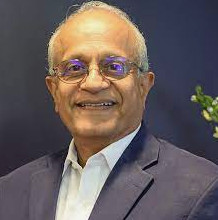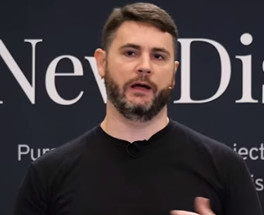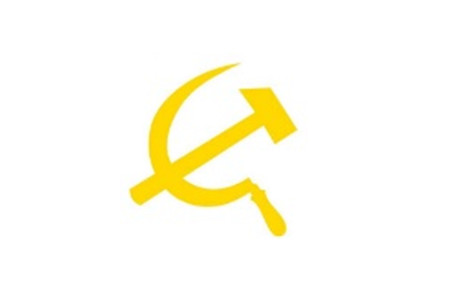The accreditation status of the North Idaho College (NIC) is in jeopardy due to a complaint filed by the:
Kootenai County Task Force on Human Relations
Spokane County Human Rights Task Force
Bonner County Human Rights Task Force
Boundary County Human Rights Task Force
These four organizations charge that the NIC Board of Directors have been acting in opposition to the taxpayer-funded NIC Diversity Council and Diversity programs at NIC and additionally, at other Idaho state colleges and universities. A highlighted copy of the complaint can be found by clicking this LINK.
There is a section on the NWCCU website titled Equity. According to the explanation in the first paragraph, DIVERSITY, EQUITY AND INCLUSION formally became a requirement for accreditation in 2020.
To the right are links to a series of lectures given by James Lindsay that explain Diversity, Equity and Inclusion. Marxism is the real problem at NIC, not the conservatives elected to the Board by the voters. In Session 3, Lindsay talks about the use of complaints as a power grab. Click the button on the top left of this page to go to NIC’s record of the NWCCU’s actions on the complaint and NIC’s response. It seems pretty clear to this writer that the accreditation status is being used as a weapon of extortion.
The complaint was filed with the Northwest Commission on Colleges & Universities (NWCCU). According to their website,
“The Northwest Commission on Colleges and Universities (NWCCU) is recognized by the United States Department of Education (USDE) and the Council on Higher Education Accreditation (CHEA) to accredit postsecondary institutions.”
“NWCCU is incorporated as a legally established, private 501(c)(3) non-profit corporation and accredits institutions of higher education in Alaska, Idaho, Montana, Nevada, Oregon, Utah, Washington, and British Columbia, along with other domestic and international geographic areas.”
. . . Since 1952, the U.S. Department of Education has listed the Northwest Commission on Colleges and Universities and its predecessors as a nationally recognized accrediting agency for institutions offering programs at the postsecondary level of at least one academic year in length. The Commission was re-recognized by USDE and CHEA in 2018 and 2019, respectively.
CHEA is an international accreditation organization that accredits the U.S. education institution accrediters. They were established in 1996 – one year after the U.S. agreed (H.R.5110) to the Marrakesh Agreement to establish the World Trade Organization.
Accrediting Marxism
Normally, it would be odd that the name of the president the Northwest Commission on Colleges and Universities (NWCCU) would be difficult to find on a website. But in this context it becomes obvious why his name isn’t front and center. His name is Sonny Ramaswamy and he is from India. (India was a socialist country closer to Russia than the U.S. before the Marrakesh Agreement was signed and included Trade in Services (GATS) under the WTO).
 Sonny Ramaswamy
Sonny Ramaswamy
Ramaswamy’s name was found in the Beacon Newsletter, Volume 5, Issue 2, December 2022, Letter from the President: Transformative Education – the Connected Student.
Ramaswamy’s Curriculum Vitae was found on the website as well. It’s in the CV where you find his connection with marxism and IT Systems.
Excerpt from Sonny Ramaswamy’s CV, Page 8 – emphasis added
SUPPORT OF DIVERSITY AND INCLUSION
I have taught and mentored high school, undergraduate, graduate, and veterinary students and postdoctoral associates, particularly women and minorities.
For over a decade with significant and continuous funding from the National Institutes of Health, I recruited and mentored African American college students from Tougaloo College, a historically black institution in Jackson, Mississippi, who worked with me to undertake scientific research and learn leadership skills, critical and problem solving skills, and communication skills. These students were coauthors on scientific publications, and they went on to pursue medical education and are now practicing doctors.
I developed an effort at facilitating greater and measurable opportunities for students of color by raising money to endow the Minorities in Agriculture and Natural Resource Related Sciences (MANRRS) program at Oregon State University, where I also envisioned, created, and endowed the Leadership Academy, including an endowed professorship, to inculcate non-cognitive and leadership skills in undergraduate students; executing experiential/service learning requirement for students.
As director of NIFA, I created a purposeful approach to creating an inclusive environment in the agency, which included offering workshops and training to staff on issues related to implicit and explicit bias, development of position descriptions for our scientific positions that allowed us to attract the broadest pool of applicants, recruitment of a diverse pool of staff, formal and informal mentoring to ensure success of staff. I provided the vision and support to create a number of Special Emphasis Programs to ensure our diverse staff representing different ethnicities and races and gender and sexual orientation are all welcomed, nurtured, and supported to be successful. I had significant success in hiring a diverse workforce, particularly at the executive leadership level – amongst my senior executives, I hired an African American male, two African American females, a Caucasian female, a Hispanic female, two Asian males, and two Caucasian males. In the lower cadres, over 40 percent of my staff belonged to underrepresented groups. Indeed, the US Department of Agriculture recognized NIFA for its diversity and for its Special Emphasis Programs focused on supporting minorities. Additionally, over the last several years, the Asian Pacific American Network in Agriculture (APANA) recognized my efforts in support of NIFA’s Asian American and Pacific Islander (AAPI) staff
(https://nifa.usda.gov/sites/default/files/resource/aapi_brochure_rev_fnl.pdf).
NIFA oversees and supports America’s 1890 Historically Black Land-Grant Universities, 1994 Tribal Land Grant Colleges and Universities, Hispanic Serving Agricultural Colleges and Universities, and Alaska Native- and Native Hawaiian-Serving (ANNH) Institutions. As director of NIFA, I made a commitment to seek increased funding for our Minority Serving Institutions (MSIs) across America, and I have had exceptional success in obtaining the same from Congress during my six-year term. I provided the vision for also creating professional development opportunities and grants workshops to enhance success of faculty at MSIs. These latter efforts have contributed to significant increases in success rates of grants submitted by faculty from underrepresented groups and from MSIs.
I chaired the AAPI efforts at USDA and, as such, represented USDA at the White House AAPI Initiative under President Barack Obama. Under this program, we developed an aggressive effort to support the unique needs of AAPIs within USDA and across the United States, many of whom are new immigrants and often do not speak English and, therefore, cannot avail USDA’s offerings. I worked with several agencies to collate funding that was offered to Michigan State University under a cooperative agreement to translate USDA resources into myriad Asian languages and to create a website to offer the same to AAPI communities across America. These efforts have resulted in tangible increase in engagement by AAPIs with USDA programs, including grants from NIFA. NIFA’s Limited English Proficiency program (https://nifa.usda.gov/resource/limited-english-proficiency) was significantly improved under my leadership, and I provided the vision and articulated my expectations to make all of NIFA’s web pages translatable using the Google Translator (https://nifa.usda.gov).
I also have supported the Federal Asian Pacific American Council (FAPAC) and the Asian American Government Executives Network (AAGEN) in their efforts to support, recruit, and retain not just Asian Americans but also men and women from underrepresented groups in positions in the US government; AAGEN is focused exclusively on the Senior Executive Service (SES) cadre and offers workshops and mentoring, both of which I was involved in actively.
As part of my efforts to support future executives, I continue to mentor and coach women and minorities.
Press Release: Obama Appoints Sonny Ramaswamy as Director of USDA’s National Institute of Food and Agriculture NIFA
Sonny Ramaswamy – Farm Tech Ambassador Farm Tech – International Network, Farming and IT Systems, Vocational Education. Notice that he talks about “from the farm to table” systems.
 James Lindsay, New Discourses
James Lindsay, New Discourses
The Marxist Roots of DEI
(Diversity, Equity and Inclusion)
Session 3 – Inclusion
Session 1 – Equity
Session 2 – Diversity
World Trade Organization
The significance of the World Trade Organization and the Marrakesh Agreement is that it included Trade in Services. IT Systems fall into the category of Services. At the time the WTO was established about 70% of our economy was classified as Services. The Marrakesh Agreement was an economic Chernobyl to our economy although it wasn’t felt immediately. The country that was ready for the nuking of our economy was India because three of the largest U.S. corporations in the U.S. lobbied for Trade in Services to be included in the agreement. The three corporations were: American Express, American Insurance Group (AIG) and Citicorp. (See Education for a Banana Republic).
James Robinson, the CEO of American Express and traitor to America made several trips to India to explain to them how they would benefit from the Marrakesh Agreement because of the size of their population, the educated Indians speak English and they were very familiar with the workings of an Administrative State (the Raj) that was implemented by the British Empire during the colonial era.
In 1995, the G7 agreed to collectively build eleven pilot global systems. This was the initiation of what could be called the Global Raj – global administrative systems for the global “open markets” economic system.
NIFA – National Institute of Food and Agriculture was created in 2008 by the Food, Conservation and Energy Act of 2008. NATIONAL INSTITUTE OF FOOD AND AGRICULTURE (NIFA) advances agricultural sciences by investing in research, extension, and education activities across the country. The National Institute of Food and Agriculture (NIFA) is the extramural funding agency within USDA’s Research, Education, and Economics mission area.
AMIS – Agriculture Market Information System – G20 System
By enhancing transparency and policy coordination in international food markets, AMIS has helped to prevent unexpected price hikes and strengthen global food security.
The AMIS Chair for the U.S., Seth Meyer, Chief Economist, USDA
Agriculture Extension Programs – that’s the insurgency entry point for rural communities






2 Comments
kristin
THis makes me wanna barf:” provided the vision and support to create a number of Special Emphasis Programs ” we used to call these people Rabble Rousers, Bolsheviks. Lots of Indians involved in all this new global stuff. Thank you Vicky for a great piece.
kristin
Vicky, you addressed something along these lines if I am not mistaken https://twitter.com/wolfejosh/status/1685374553541775360?s=20 universities as de facto migration hubs…